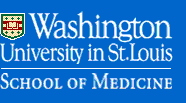


 |
 |
 |
|
|
Healing Body & Soul Siteman Cancer Center outreach programs |
||||||||||
|
“Outreach programs help us fulfill one of our most important missions—that of being a resource to our entire community.” TIMOTHY J. EBERLEIN, MD, DIRECTOR
|
In May 2001, Deborah Dixon of Shiloh IL, saw a television report about a new Daily Lives Planner, available free to Metro East women. Intrigued, she ordered one—and before long it had changed her life. With its artwork from the Jackie Joyner-Kersee Boys and Girls Club and “power passages” from the Eugene B. Redmond Writers Club of East St. Louis, it was appealing, colorful; it also was packed with information about breast cancer screening and prevention. Dixon had already had a personal brush with cancer: Her
daughter, Montrice, died of leukemia in 1992, just before her 21st birthday.
Reading the planner now reminded Dixon that she herself had not had a
physical since Montrice was born, 30 years before.
Deborah Dixon, right, convinced niece Jamie Williams of the benefits of better health care. That’s the kind of testimonial M. Katherine Jahnige, MD, MPH, assistant professor of obstetrics and gynecology, likes to hear. In collaboration with a community advisory board and the St. Louis University School of Public Health, she developed and published the planner, with funding from the Susan G. Komen Breast Cancer Foundation. It is one of several promising new programs recently undertaken by the Alvin J. Siteman Cancer Center of the School of Medicine and Barnes-Jewish Hospital that target underserved and uninsured patients, mostly from the African-American community. As Siteman’s first community outreach coordinator, hired in 2000, Jahnige stands at the center of this effort in a job that cuts both ways. On the Siteman side, she is working with medical faculty and staff to improve access to screening and treatment for needy patients; on the community side, she is forging relationships, building trust, urging people to take advantage of Siteman’s cancer-related resources. Sometimes that means confronting barriers, such as cultural beliefs about breast cancer: “It’s a death sentence.” “It’s all in God’s hands.” It also means dealing with deep-seated suspicions of any hospital that was part of the segregated era of health care. “People carry a lot of painful memories from the past,” says Jahnige, who received her medical degree from Harvard and a master’s in public health from Yale University, both in 1994. “They also complain about medical researchers who have come out when they had a grant, then left when the money ran out. So there is some concern about whether this is a place that has a sustained commitment to the community.” During the two years she spent at Grace Hill Neighborhood Health Center in north St. Louis after finishing her residency, Jahnige heard such concerns firsthand. But she also found that when she approached Siteman about establishing a referral channel for Grace Hill patients with abnormal mammograms and breast lumps, Shirley Johnson, director of oncology services, was instantly ready to help. And when she discussed a possible position at Siteman with Timothy J. Eberlein, MD, director of the Siteman Cancer Center, she also was impressed by his conviction. “I heard in Dr. Eberlein a person who meant it when he said to me: ‘It is the mission of a comprehensive cancer center to reduce the burden of cancer in the region, and that means everybody.’ I thought then that we really had an opportunity to reframe public perceptions, to improve our relations with the community,” she says.
Indeed, says Eberlein, outreach programs are a critical focus of the Siteman Cancer Center. “They help us fulfill one of our most important missions—that of being a resource to our entire community,” says Eberlein, who is also the Spencer T. and Ann W. Olin Distinguished Professor at the School of Medicine. “Through the many programs under Dr. Jahnige’s fabulous leadership, we can bring our cutting-edge interventions in education, screening, early diagnosis and treatment to all the citizens of this region.” And this commitment is institution-wide, Jahnige has discovered. She now meets regularly with James P. Crane, MD, associate vice chancellor for clinical affairs at the School of Medicine and chief executive officer of Washington University Physicians, and Steven B. Miller, MD, chief medical officer for Barnes-Jewish Hospital (BJH). In June 2002, she gave a presentation on cancer screening outreach to the BJH board. After her talk, Steven H. Lipstein, BJC president and chief executive officer, made an impassioned speech about the medical center’s role in public health. Already, Siteman Cancer Center provides several million dollars per year in charity care. And long before Siteman was established, the Barnard Free Skin and Cancer Hospital, founded in 1905, offered free help to people with cancer. Today, Barnard funds still support inpatient and outpatient treatment of cancer, as well as free mammograms, prescriptions, nutritional supplements, home medical supplies, lodging and transportation to and from the hospital. “Building on this rich tradition, the Siteman Cancer Center now reaches thousands of St. Louisans each year through community lectures and cancer screenings,” says Shirley Johnson, RN, MS, MBA. “Reaching out to individuals who did not have previous access to such services and support has resulted in many being diagnosed and treated who otherwise might not have received care.” But the need is acute—and growing, Jahnige says. Each year, some 29,000 Missourians are diagnosed with cancer and 12,000 die; on the local, state and national levels, African Americans consistently show higher-than-average cancer mortality rates. Yet screening efforts do not always reach those who would benefit. “Where are the women who are not getting regular mammograms?”
asks Jahnige, who lost her own father to cancer when she was 9 years old.
“They are right here in the city of St. Louis, where our screening
rates are in the bottom half for the state.” When she began her new job at Siteman, Jahnige knew she would focus on one of the four forms of cancer that have the greatest population impact: breast, colorectal, lung and prostate. Her own medical background nudged her toward breast cancer, as did Siteman’s history of interest in this area. Since 1999, Siteman has been an annual sponsor of the Susan G. Komen “Race for the Cure” in St. Louis; together, the Breast Health Center and Barnes-Jewish Hospital mammography van, sponsored in part by Washington University’s Mallinckrodt Institute of Radiology, already perform thousands of screenings each year. And Shirley Johnson had just received a new Komen Foundation grant to fund the use of the van for screening women who were uninsured. Now Jahnige and her colleagues are reaching out in new directions. The original grant has provided mammograms and follow-up care to some 1,100 uninsured women. A new Barnes-Jewish Hospital and Komen- funded breast cancer outreach effort is focusing on providing mammograms to refugee and immigrant women, along with materials translated into 11 languages. Coleen Stoutenburg, manager of the Breast Health Center at Barnes-Jewish Hospital, has applied for a collaborative grant to extend screening to Missouri’s rural counties, 42 percent of which do not have a single mammography unit. Stoutenburg has been active in outreach, says Jahnige, turning funds from Komen, the Judy Ride, and the state-funded Breast and Cervical Cancer Control Project (BCCCP) into vital services for patients. They also are beginning to look beyond breast cancer to preventing and detecting other forms of cancer: colorectal, through screenings conducted in conjunction with the Family Care Health Center of St. Louis with support from the St. Louis Men’s Group Against Cancer; prostate, in collaboration with various community partners, such as the American Cancer Society, black fraternity chapters and the Minority Leadership Committee; and cervical, through a weekend pap smear program in the Hispanic community, co-sponsored by the Jewish Hospital College of Nursing. In the future, Jahnige wants to increase access to genetic counseling for high-risk minority families and better communicate the need for African-American participation in research studies. Jahnige is constantly amazed by the support she has received from around the Medical Center. When she schedules a Saturday prostate screening, for example, she contacts the Department of Urology to let them know that blood samples will be coming in for testing. “I just e-mail them and somebody always says: ‘Sure, I’ll work this weekend to do that.’” Just as important is the support given so generously by community partners. Jahnige spends many hours a month meeting with groups around the area to make sure that she, and the Siteman Cancer Center, are moving in the right direction. “It’s so important not to ride in and say: ‘Here’s what we are going to do for you.’ Instead, we want to come to people and ask: ‘How can we be helpful?’”
|
|||||||||